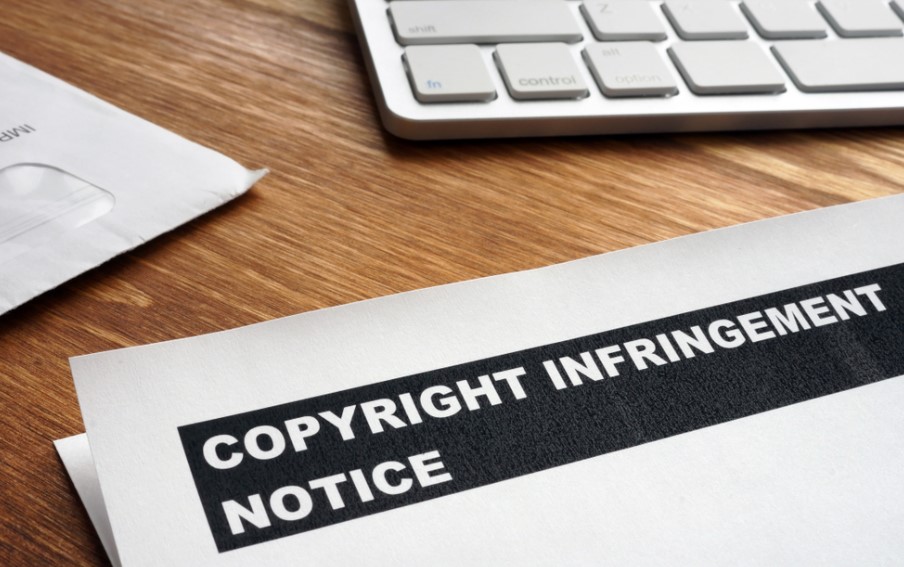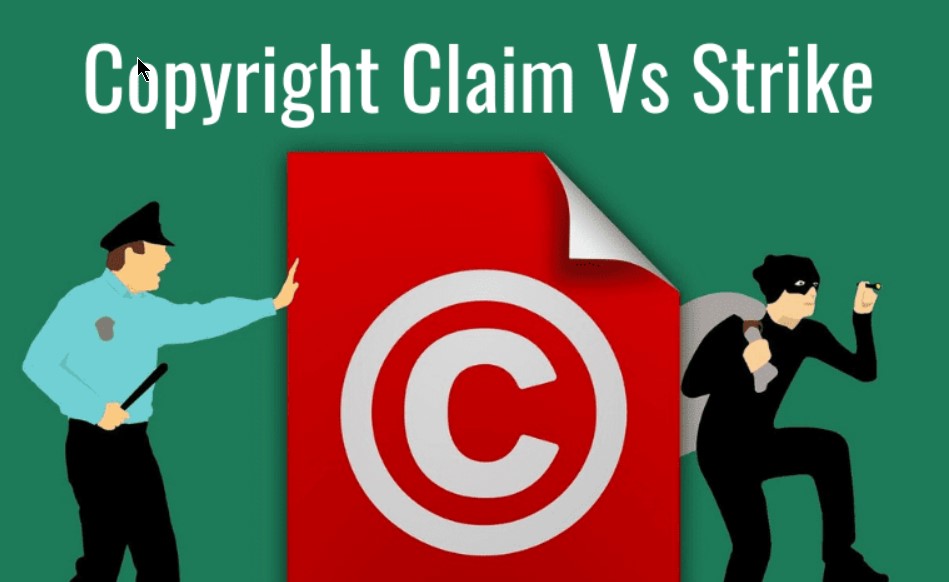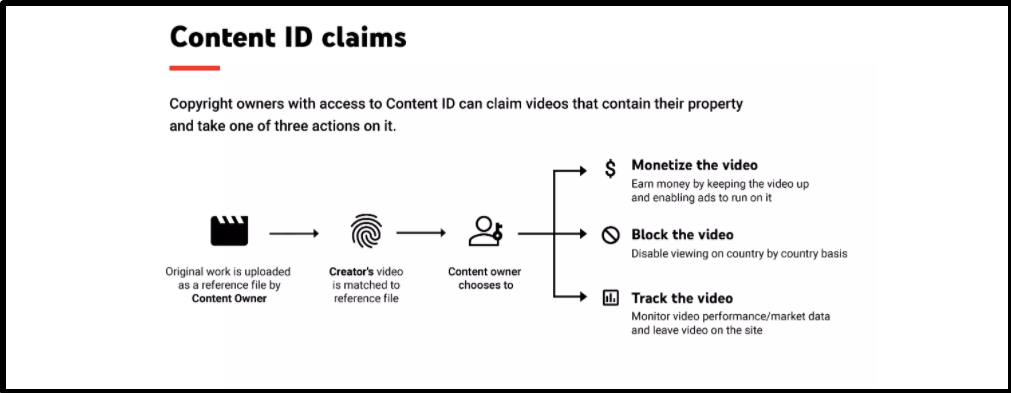Copyright Claim and Copyright Strike are two terms that are often used interchangeably, but they actually refer to different things. Understanding the difference between these two terms is important for content creators, as it can help them avoid legal trouble and ensure that their content is protected.
so, Understanding the difference between a copyright claim and a copyright strike is essential for content creators. This article explains the key differences between the two and provides information on how each can impact your content.
what is copyright claim ?
Copyright Claim refers to a situation where someone asserts that they have a legal right to use a piece of content, either because they created it themselves or because they have obtained the necessary permissions from the original creator.

This is a relatively straightforward process and is often used when people want to use copyrighted material in a way that is considered “fair use,” such as for criticism, commentary, or news reporting.
what is copyright strike ?
In contrast, Copyright Strike refers to a situation where someone asserts that their copyrighted material has been used without their permission. This can result in serious consequences, such as the removal of the offending content, legal action, or the termination of the offending party’s account. Copyright strikes are typically issued by content creators or their representatives, such as a record label or movie studio.
Key difference between Copyright Claim and Copyright Strike
Copyright claim and copyright strike are two different things when it comes to copyright infringement. The key difference between a Copyright Claim and a Copyright Strike is the level of legal action involved. Copyright Claims are generally more informal and are often resolved through negotiation or mediation. Copyright Strikes, on the other hand, can result in legal action and are taken very seriously by content creators and platforms alike.

Another important difference between Copyright Claims and Copyright Strikes is the level of proof required to make each claim. Copyright Claims typically require a lower level of proof, as the burden is on the person making the claim to show that they have a legal right to use the content. I
n contrast, Copyright Strikes require a higher level of proof, as the burden is on the person issuing the strike to show that their copyrighted material has been used without their permission.
It’s also worth noting that the consequences of a Copyright Strike can be more severe than those of a Copyright Claim. If a content creator issues a Copyright Strike against someone, the offending content may be removed from the platform in question and the offending party may face legal action or the termination of their account. In contrast, a Copyright Claim is generally less severe and may only result in the content being removed or edited to comply with copyright laws.
Conclusion
In conclusion, Copyright Claim and Copyright Strike are two distinct terms that refer to different situations involving the use of copyrighted material. While both can have serious consequences for content creators, it’s important to understand the differences between them in order to protect your own content and avoid legal trouble.
Copyright claim and copyright strike are both legal actions that can be taken by copyright owners to protect their rights. This article explains the key differences between these two actions and what you need to know if you receive a claim or strike.
If you’re unsure about whether your use of copyrighted material constitutes fair use or if you’re concerned about potential copyright infringement, it’s always a good idea to consult with a legal professional who can help guide you through the process.

